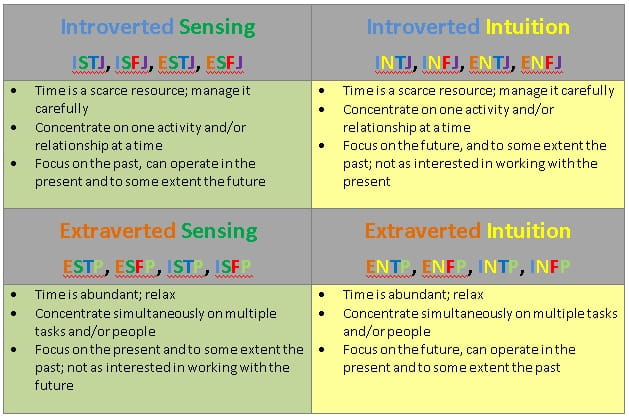What type time is it?
John Hackston - Head of R&D at OPP

Time is a tricky subject (as any aficionado of Dr Who will tell you), so here at OPP we were intrigued when the British Association of Psychological Type announced that their annual conference this May would have the theme of ‘Time’ (possibly because the conference was held in Greenwich, home of Greenwich Mean Time). This allowed us to carry out some very interesting research into the relationship between type, culture, and our experience of time, and my colleague Ingrid Manning and I were both able to give presentations. This blog post is based on our findings.
Time. An ethereal concept, or a real resource? Something elastic, or an uncompromising task master? Sometimes there seems to be too much of it, and at other times never enough. Our relationship with time is one that travels with us through the stages of life and helps us to get things done .... or not… or eventually! Do we live in the future, the past, or the here and now? And what about the person next to you? You are both here and now, but are you really?
Perhaps we all know what time is, but what we ‘know’ will differ depending on our personality, and in particular on our psychological type. Here are two genuine definitions of time from two different people:
- Example A: Guidelines. Sets morning, lunch, evening, etc. Divides day into 24 hour pieces.
- Example B: The 4th dimension, though one through which we do not have freedom of movement. The pace of events. Physically metronomic, psychically accelerates.
One of these was written by someone with SJ preferences, the other by an individual with preferences for NP. We’ll let you guess which is which (the answer is at the end of this article).
Writing down definitions of time is probably not something that you regularly do in your day job, but the way in which we perceive time does have important practical implications for the workplace. OPP’s research suggests that the way we use our Perceiving function – the S or N in our four letter MBTI type, together with J and P, which determines its orientation – has big implications for how we approach our work.
In our research results, people differed in the extent to which they saw time as scarce or plentiful, whether or not they preferred to do several things at the same time, and whether they were more orientated towards the past, the present or the future. This is what we found:

There are some big differences here, especially between SJ and NP types, and between SP and NJ types. The different ways in which we see and use time can have a whole range of impacts from differences in attitudes around planning, via mutual incomprehension (“why are they going on about the future when there is so much happening right now?”) to outright conflict. We have put together a webcast where you can find out more. We will talk about our research, but also about the experiential aspects and the practical implications of type and the perception of time. And along the way, there may be a few surprises. For example, contrary to what you might think, it may be that Perceiving types are actually better at estimating time than Judging types.
(Answers to the definitions: A was written by the person with SJ preferences and B by the NP individual.)